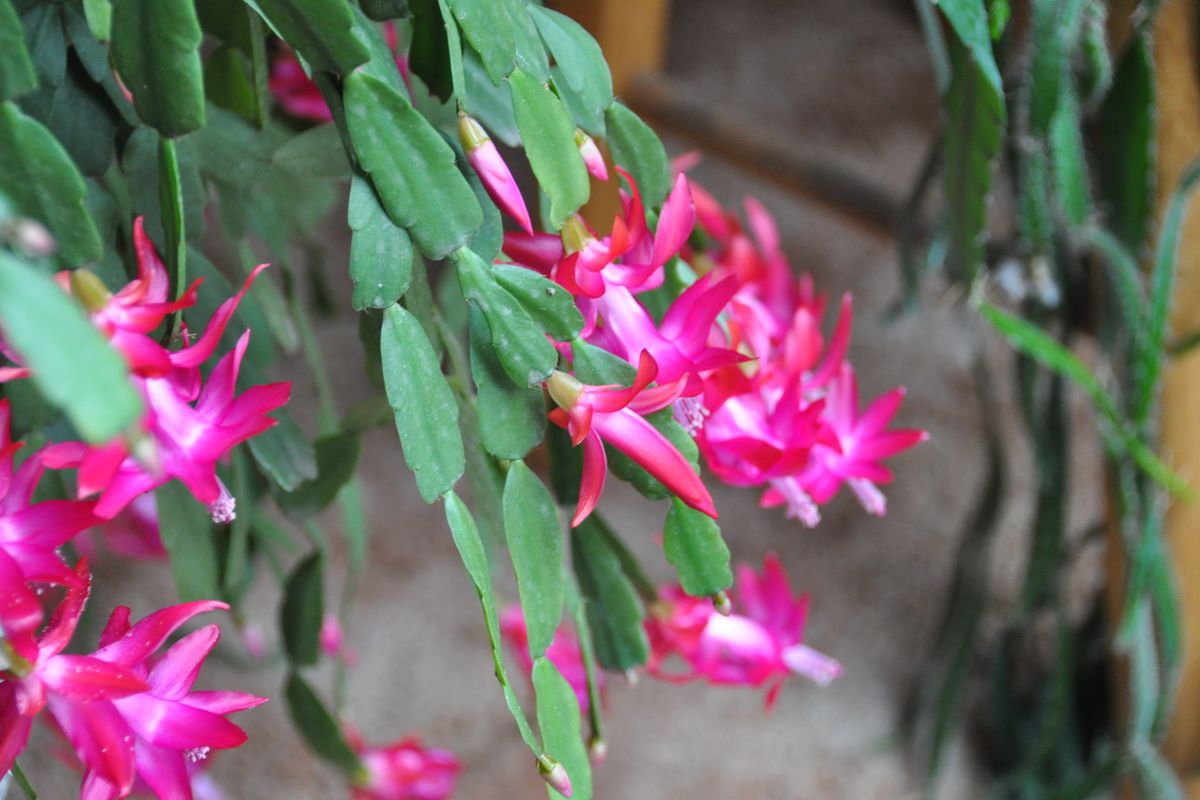Gardening: Holiday greens could make pets sick

We are quickly rolling into the holiday season and with that, holiday plants are calling us to take them home. While the color brightens the house, they can affect our furry house mates. Here are some things to watch for around your dogs and cats.
Poinsettias are the most popular plant for the holidays. Unfortunately, those leaves contain a sap that is irritating to your pets especially curious cats and kittens. The milky white, sticky sap of the plant and the pesticides sprayed on the plant can cause mouth and throat irritation if the leaves are nibbled. Fortunately, the taste of the sap usually puts a stop to the munching before they eat a quantity that has serious effects. If they eat too much, symptoms can include nausea and vomiting and more uncommonly, seizures, coma, and in some cases, death. To be safe, put the plants up high where the animals can’t climb to them.
Both fresh and dried holly and mistletoe plants and berries have more of an effect than poinsettias. Mistletoe contains multiple substances that impact dogs and cats, including toxalbumin and pharatoxin viscumin that can cause severe intestinal upset, blood pressure changes, breathing problems and even hallucinations.
Nibbling on lilies and daffodils can cause issues. For cats, eating even a small amount of a lily plant can cause severe symptoms such as gastrointestinal issues, arrhythmia and convulsions. The daffodil bulb is the most toxic part of the plant for dogs and cats and can cause gastrointestinal issues.
Amaryllis, the weird-looking plant that emerges from a large bulb to a stately tall trumpet flower head, can cause issues for cats and dogs. The whole plant, also known as Belladonna, Saint Joseph Lily, Cape Belladonna and Naked Lady, contains lycorine, which can cause salivation, vomiting, diarrhea, decreased appetite, abdominal pain, lethargy and tremors.
Fortunately, Christmas cacti and their cousins, the Thanksgiving and Easter cacti, do not contain any toxic materials that will affect dogs or cats. Their leaves, however, can be quite fibrous and can cause gut irritation if too much is eaten.
Beyond the hazards of enticing ornaments and lights, evergreen Christmas tree needles can be irritating to dogs and cats. The sharp, sappy needles can cause gastrointestinal irritation, obstruction and punctures if large quantities are eaten. To prevent cats from toppling the tree, wrap a stout cord around the trunk, about two thirds of the way up and then anchor the cord to the wall or a window frame.
All this doesn’t mean holiday plants should be banned from your home if you have pets. You just need to be cautious. Supervise pets for a time after bringing a plant home or block them out of the space when you are gone. Be aware that cats are skilled climbers and will explore anywhere they can reach. If you find your pet has eaten some of the plants and is not acting right, call your veterinarian or the closest pet emergency clinic for advice.